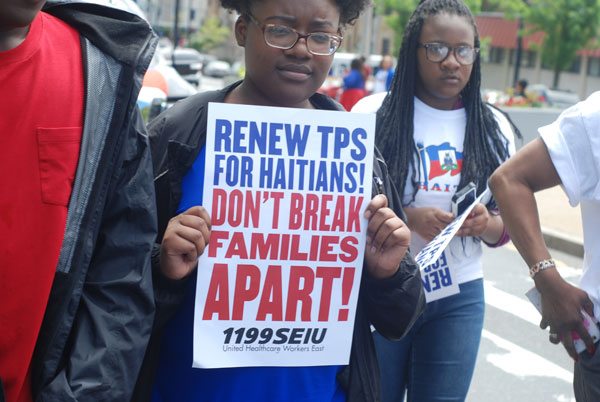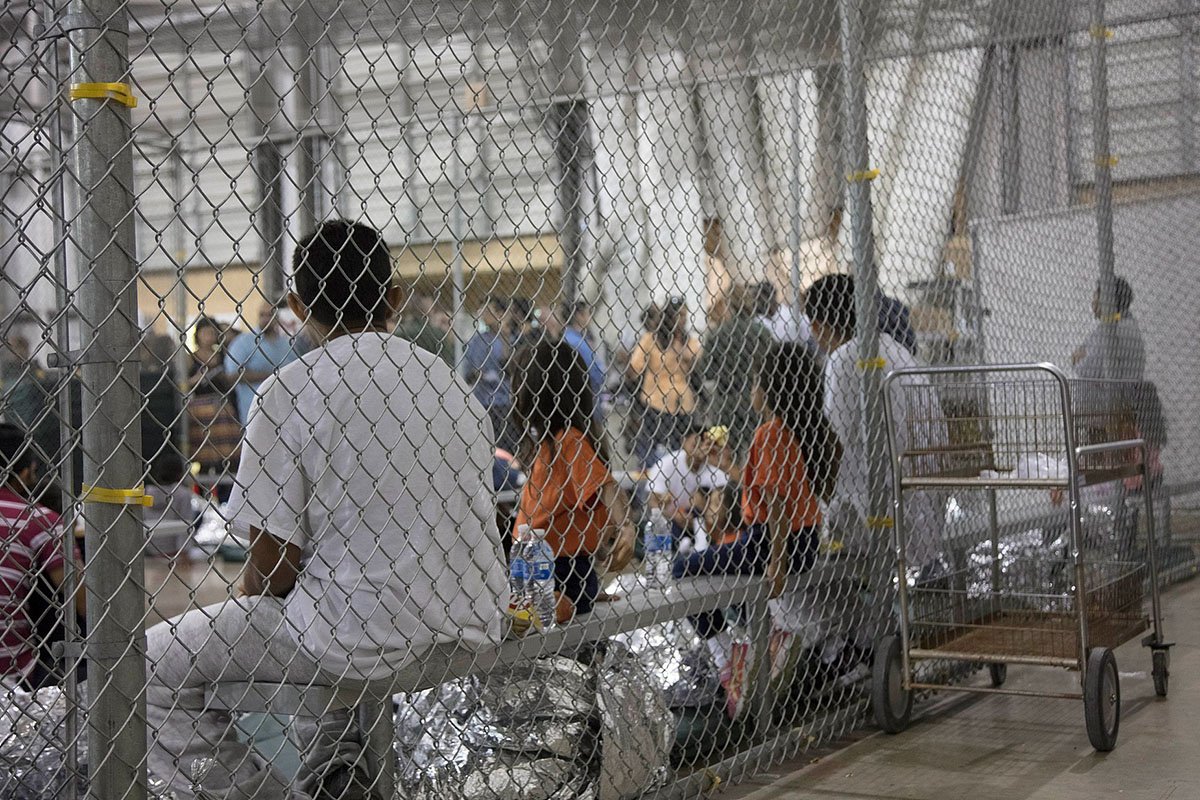
November 23, 2017; New York Times and Boston Globe
On November 20th, the Trump administration announced that Temporary Protective Status (TPS) for Haitians would end in July 2019. The administration suggested that Haitians prepare themselves to return to their country of origin, the poorest nation in the Western hemisphere. Nearly 60,000 Haitians could be forced to return home after years of working, raising families, and establishing themselves in the US.
TPS has been granted to Haitian immigrants since the 2010 earthquake that devastated the island nation. More than 300,000 people were killed by the earthquake, and over 1 million people were displaced. A cholera epidemic, which followed the earthquake, killed another 9,000 people and has only recently been brought under control. In the meantime, in October 2016, Hurricane Matthew brought another major blow, destroying most of the homes on the Southern part of the island.
Despite the immense poverty, lack of infrastructure, and limited healthcare, the Trump administration has concluded that Haiti is prepared to reintegrate tens of thousands of citizens now living and working in the United States. With more than 50,000 Haitians still living in temporary and unstable conditions within their own country and 40 percent of the population unemployed, the decision to end TPS seems premature at best.
Under TPS, Haitian immigrants are able to acquire legal work permits, and over 80 percent are employed, many in healthcare and long-term care. According to PHI, the nation’s leading authority on the direct-care workforce (nursing assistants and home care aides who support elders and people with disabilities), seven percent of these workers speak French Creole at home—not an insignificant number in an industry facing a severe labor shortage.
As NPQ has reported in the past, immigrants are vital to addressing our nation’s caregiving crisis. In regions such as South Florida, New York, and Massachusetts where large numbers of Haitian TPS holders reside, long-term care providers are deeply concerned.
Sign up for our free newsletters
Subscribe to NPQ's newsletters to have our top stories delivered directly to your inbox.
By signing up, you agree to our privacy policy and terms of use, and to receive messages from NPQ and our partners.
“The elimination of TPS will further exacerbate our challenge to recruit and retain skilled workers,” wrote Tara M. Gregorio, president of Massachusetts Senior Care Association, when the Trump administration announced it was reconsidering TPS designation for Haitians last May.
Bethany Health Care Center in Framingham, Massachusetts, wrote to Sec. John Kelly in May that six percent of its caregiving staff were Haitian immigrants. Many of those workers, the letter noted, send remittances home to families in Haiti, helping to keep the economy afloat. Haitians sent home $1.2 billion, or 20 percent of the country’s annual GDP, in 2012, according to the Migration Policy Institute.
There appears to be no upside in this decision for anybody. Haitians, who on average have lived in the US for 13 years, and their 27,000 US-born children are faced with unbearable choices: Take their children to Haiti, where there is limited economic opportunity and serious health and safety risks, or leave their children behind and break up their families. US citizens lose, too. Not only will the loss of skilled caregivers exacerbate our worst caregiving crisis in decades, the US will lose $164 billion in annual GDP.
Nonetheless, Haitian immigrants felt the November 20th announcement was a “short-term victory.” The 18-month extension of TPS, they say, provides time to organize and pressure Congress to provide a permanent solution.
“We are confronted with forces on the other side of this argument that would have liked nothing more than immediate expulsion, and that’s not what happened,” Linda Dorcena Forry, a Massachusetts state senator and the daughter of Haitian immigrants, told WBUR. “So that’s a positive thing to have this extension. It’s a good step in the right direction.”
On November 21st, immediately following the administration announcement, in South Florida, 300 people protested in West Palm Beach, across from Mar-a-Lago. Led by Unite Here, the hotel and hospitality workers union, protesters called for permanent residency. It seems like a reasonable request, after years of hard work in a country many Haitians now call home.—Karen Kahn












